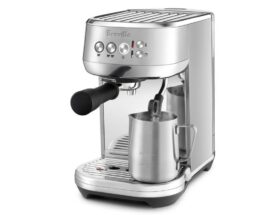
Plastic French Press: Is it a Better Alternative?
Picture this: It’s a lazy Sunday morning, and you’re craving that perfect cup of coffee to kickstart your day. As you shuffle over to your kitchen, you reach for your beloved French press, a tried and true method for brewing rich and aromatic coffee. But what if there was an alternative? A plastic French press that promises the same taste and convenience without the fragility of glass. Is it a better option? In this blog post, we will explore the world of plastic French presses and determine if they truly live up to the hype. So grab a cup of joe, sit back, and let’s dig into this intriguing coffee debate!
Table of Contents
The Rise of Plastic French Presses
In recent years, the popularity of French press coffee has soared. Many coffee enthusiasts praise this brewing method for its rich and robust flavor. Traditionally, French presses were typically made from glass or stainless steel. However, there has been a growing trend towards plastic French press options.
The Pros of Using a Plastic French Press
1. Durability: One of the main advantages of plastic French presses is their durability. Unlike glass presses, they are less prone to cracking or shattering, making them ideal for travelers or anyone who tends to be a bit clumsy in the kitchen.
2. Lightweight: Plastic presses are significantly lighter than their glass or stainless steel counterparts. This makes them easier to handle and transport, making them a preferred choice for those who frequently brew coffee on the go.
3. Affordability: Plastic French presses are generally more budget-friendly compared to their glass or stainless steel counterparts. For coffee lovers on a tight budget, this can be a major selling point.
The Cons of Using a Plastic French Press
1. Potential for Flavor Alteration: Plastic materials have a higher likelihood of retaining odors and flavors. This means that over time, the coffee brewed in a plastic French press may develop an unpleasant taste. Additionally, some experts argue that the plastic can impact the overall flavor of the coffee, making it less enjoyable.
2. Environmental Concerns: Plastic is known for its negative impact on the environment. By choosing a plastic French press, you may contribute to the accumulation of non-biodegradable waste.
The Verdict: Glass or Plastic?
Ultimately, the choice between a glass or plastic French press depends on your personal preferences and priorities. If durability, affordability, and portability are your main concerns, a plastic press may be the way to go. However, if you prioritize the taste and environmental impact, a glass or stainless steel press may be a better choice.
In conclusion, while plastic French presses have their advantages, it’s essential to consider the potential drawbacks. If you’re seeking a superior coffee experience and are conscious of the environment, opting for a glass or stainless steel French press is recommended.








